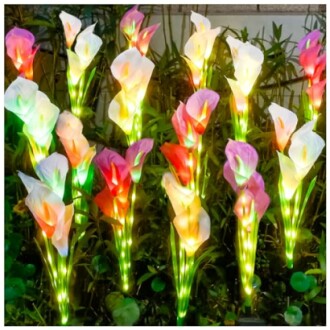
Tips for choosing vertical planters
- Choose the right materials that suit your balcony's environment.
- Consider the design and type of plants you wish to grow.
- Look for planters that maximize space usage.
If you're looking to create a dream green retreat on your balcony, vertical gardening can be your best friend! Vertical planters are perfect for maximizing small spaces, allowing you to grow a variety of plants without consuming too much area. But with so many options available, how do you choose the right vertical planters for your balcony garden? This guide covers essential tips on selecting the right planters based on materials, designs, and more.
Understanding vertical planters
Vertical planters are gardening solutions that allow you to grow plants upwards instead of sideways. They can be attached to walls, freestanding, or even hung from ceilings. By using vertical space, they not only save ground space but also provide a striking visual effect.
Key materials to consider
When selecting vertical planters, the material plays a crucial role in determining durability and maintenance. Here are popular materials and their benefits:
| Material | Benefits | Considerations |
|---|---|---|
| Plastic | Lightweight, affordable, and available in many colors | Can fade over time and may not withstand heavy winds |
| Wood | Natural look, good insulation for plant roots | Requires regular treatment to prevent decay |
| Metal | Durable and modern aesthetic | May heat up and could pose a risk of root damage in direct sunlight |
| Fabric | Good drainage and air circulation | May require more frequent watering |
Choosing the right design
The design of vertical planters can vary significantly—from tiered structures to wall-mounted pockets. Here’s what to keep in mind when selecting:
- Space Availability: Measure your available space to avoid crowding.
- Plant Type: Some designs cater better to certain types of plants. For example, trailing plants look great in hanging planters.
- Accessibility: Ensure that you can easily reach your plants for maintenance and harvesting.
Best vertical planter designs for balconies
To give you some inspiration, here are some of the best vertical planter designs that can work beautifully on a balcony:
DooYard Solar Garden Lights
These colorful solar calla lily flower lights are perfect to add charm to your vertical garden. They illuminate the area beautifully at night, creating a magical ambiance.
Learn MoreFactors to consider when choosing vertical planters
Now that you know about materials and designs, here are some additional factors to help you finalize your decision:
- Weight: Consider how much weight your balcony can support.
- Drainage: Ensure adequate drainage to prevent water accumulation, which can rot plants.
- Maintenance: Opt for planters that are easy to clean and maintain.
- Style: Choose planters that match your personal style and aesthetic of your home.
Choosing plants for vertical gardening
When setting up your vertical garden, the plants you select can greatly impact its success. Here are some popular options:
- Herbs like basil, mint, and thyme
- Colorful flowers such as petunias or nasturtiums
- Climbing plants like peas and beans
- Succulents for a low-maintenance option
DIY vertical garden ideas
Feeling crafty? Here are a few DIY ideas you could try:
- Use old wooden pallets to create a rustic vertical garden.
- Hang vertical planters made from plastic bottles.
- Repurpose gutters to create a tiered gardening effect.
Conclusion
Vertical planters are an excellent way to make the most of limited space on your balcony while expressing your love for gardening. By considering the right materials, designs, and plants, you can create a vibrant and functional vertical garden. For more ideas and guidance, check out our vertical gardening techniques. Happy gardening!
Pros
- Efficient use of limited space.
- Creative and aesthetic displays.
- Diverse plant options suitable for vertical growth.
Cons
- May require more frequent watering and maintenance.
- Some designs may not support heavier plants well.
